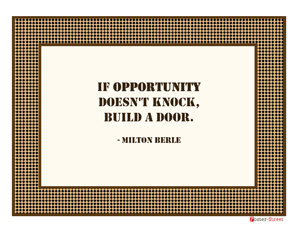
Opportunity for unpublished writers to be discovered by publishers
 Opportunity for unpublished writers to be discovered by publishers
Opportunity for unpublished writers to be discovered by publishers
In the fast changing world of publishing, publishers are wary of taking on board authors who do not already have a guaranteed fan base. As a result, unpublished authors who wish to find a publisher rather than embark on the self-publishing journey stand almost no chance to have their manuscript chosen for publication by an established publisher. Actually, unless they managed to secure a reputable agent, they stand no chance at all. Unless…
Unless they use Harper Collins McMillan opportunity Authonomy…
Authonomy is a system that attempts to combine the weight of established publishers’ skills to uncover potential best selling writers with the new age of “crowd chosen” viable manuscript.
This is how it works: Writers submit all or part of their manuscript to a community of writers and undertake to read and rate other writers’ pieces. In order to ensure that submissions are indeed being read, the rater has to answer a few questions about the rated submission.
Let’s see what happens to John Smith who just submitted the first chapter of his fantasy novel to Authonomy. John is asked to rate at least 5 works submitted by other writers. As John likes fantasy, horror and science-fiction, he chooses to rate pieces from these genres.
At first, John, being the cunning fox that he is, thinks he will just give a rating without even bothering to read a line, and thus gather lots of credits and have his own work abundantly reviewed. So he gives a high rate for characterization, a middle rate for editing and so on, writes a generic 2 lines comment that can be used pretty much for anything and click enter to validate his rating.
To John’s dismay, he has to answer 5 questions about the content of the piece. It is a multiple choice so he decides to take a chance and answers haphazardly. Low and behold, he fails the “reading test” and has to start again from scratch.
Properly chastened, he proceeds to read his assigned pieces and rate them honestly. For added security he rates more than the minimum required and so gain credits. These credits are applied to his own submission that gets rated more often.
John, despite his unpalatable cunnings, is a gifted writer, so his submission garners high ratings and gets shortlisted to be reviewed professionally by one of Harper Collins McMillan’s in-house editor. Unfortunately, his ratings fall just short of giving him first place, so he will not yet be chosen to be published this time, but he can resubmit and try again.
This hybrid model is an attempt to combine traditional ways of selecting manuscript from the slush pile and getting advanced reaction from a wider readership, thus increasing the odds that the winning manuscripts will indeed become best-sellers once published. It also enables any writer to take a shot at submitting their manuscript directly to a big publisher and guarantees that he will receive feedback from fellow writers. All these fellow writers are in fact Beta readers who are giving honest opinion about your writings, unbiased by friendship or family ties.
So even those writers who do not get shortlisted benefit from bona fide feedback that they will be able to use to improve their writing.